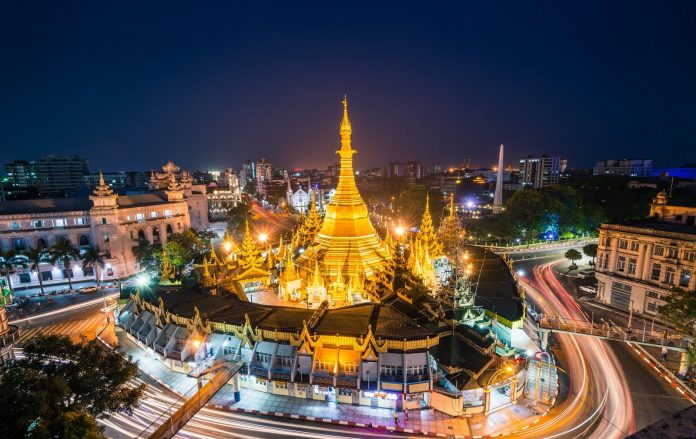Myanmar’s shadow government is accusing employment companies of helping the military regime’s funding by assisting in the collection of taxes from Myanmar workers who have fled abroad. The National Unity Government last week announced it had designated the government-backed organization which oversees recruitment agencies that send workers overseas as “an illegal association. “The NUG is a civilian body formed by ousted lawmakers and pro-democracy activists following the military takeover three years ago.
Its Ministry of Labor said in a statement on February 5. that the Myanmar Overseas Employment Agency Federation was “actively collaborating with the military junta” and neglecting expatrates’ poor working conditions. While the military regime has been promoting overseas employment to address the country’s lack of jobs and its low foreign currency reserves, the NUG condemned the taxation of overseas workers’ income and a requirement that they remit 25% of their earned wages to their families back in Myanmar. The regime introduced the measures last year. The statement says the foreign currency flowing to the regime “is primarily used to import aircraft fuel for air attacks on civilian populations and to purchase weapons and ammunition.”
The NUG also called on local and international recruitment agencies to support the NUG and cooperate with it, warning any agencies found to be “ignoring timely resolution of labor rights violations or complicit in forced taxation or channeling remittances to benefit the junta” would be “blacklisted and face prosecution” under the counterterrorism law. How much impact the statement might make remains to be seen. Migration-related companies have expressed confusion, and the NUG’s Ministry of Labor has not responded to questions from Nikkei regarding how it would prosecute cases.
People familiar with the industry say it is hard to fathom that these agencies would immediately sever ties with the MOEAF or with Myanmar embassies, which are also under the regime’s control. The companies seem to be taking a wait-and-see attitude concerning the NUG’s announcement. The NUG has directed similar warnings to local industries. It ordered the dissolution of the Union of Myanmar Federation of Chambers of Commerce and Industry, the country’s top business association, and added 64 persons, including prominent business leaders, to a blacklist. It said those on the list would be prosecuted if they failed to sever ties with the military regime.
These moves appear to stem from the NUG’s concern over its diminishing presence as economic activities recover to some extent and the military government deepens and expands its dialogues with China, Russia and the Association of Southeast Asian Nations. The NUG — despite being a continuation of the government led by democratic leader Aung San Suu Kyi, who upheld principles of nonviolence — declared an armed resistance in September 2021. Some anti-military media outlets have since pointed to the NUG’s lack of control over resistance forces and criticized the group for not transparently collecting taxes in areas where the resistance has taken control. With Myanmar’s courts under military control, a local lawyer pointed out that “there is currently no [public] mechanism for the NUG to enforce the law and penalize companies [for noncompliance]. … If the NUG were ever to join the government, it could exclude certain companies based on records.”






















